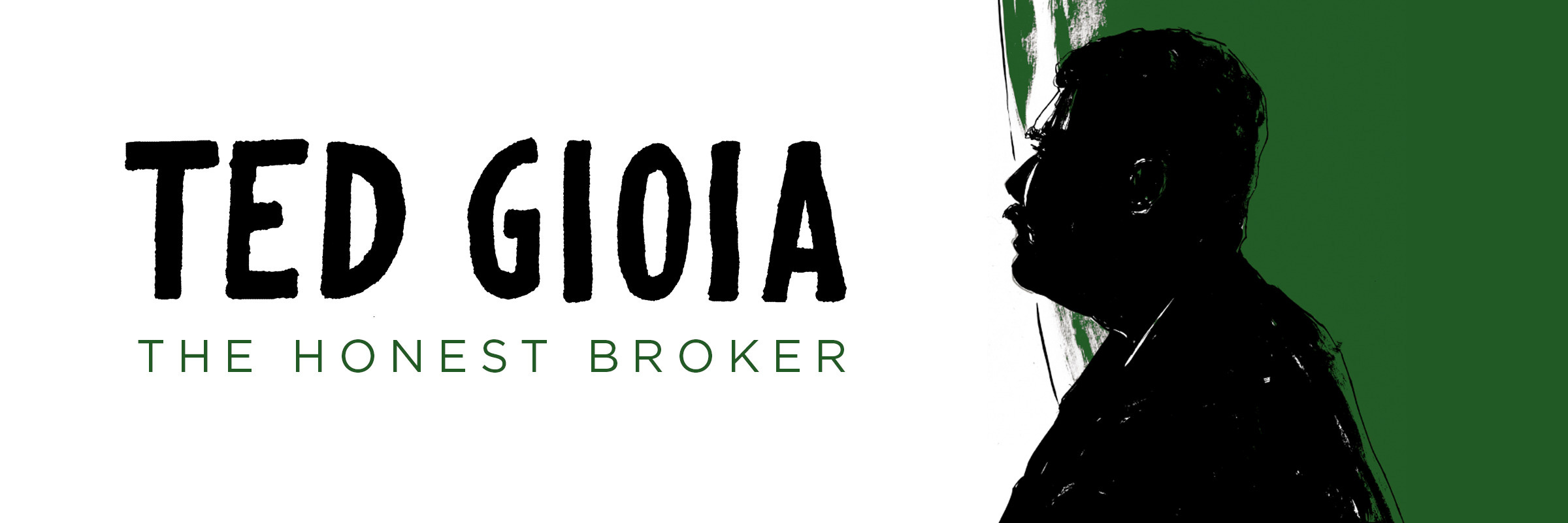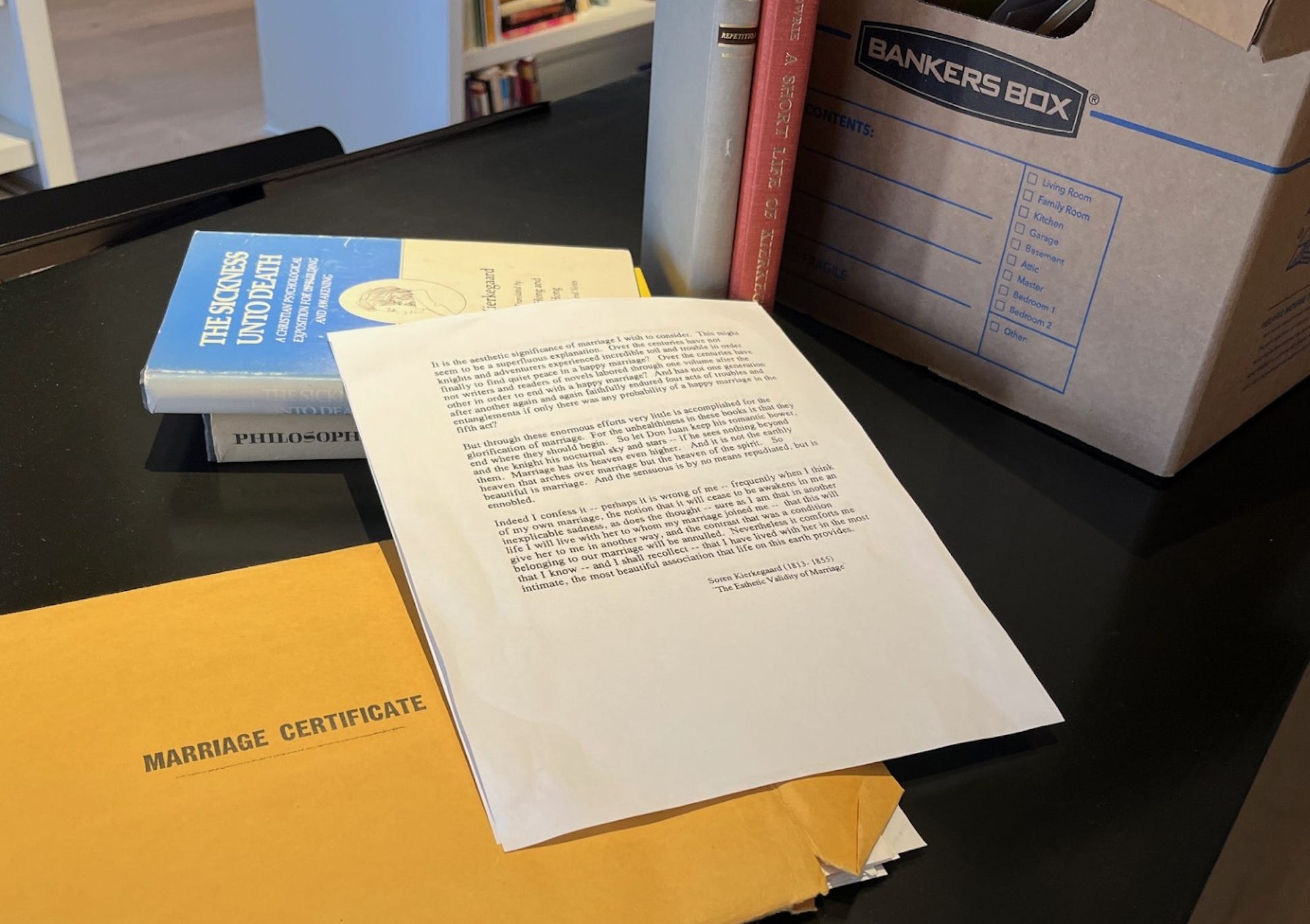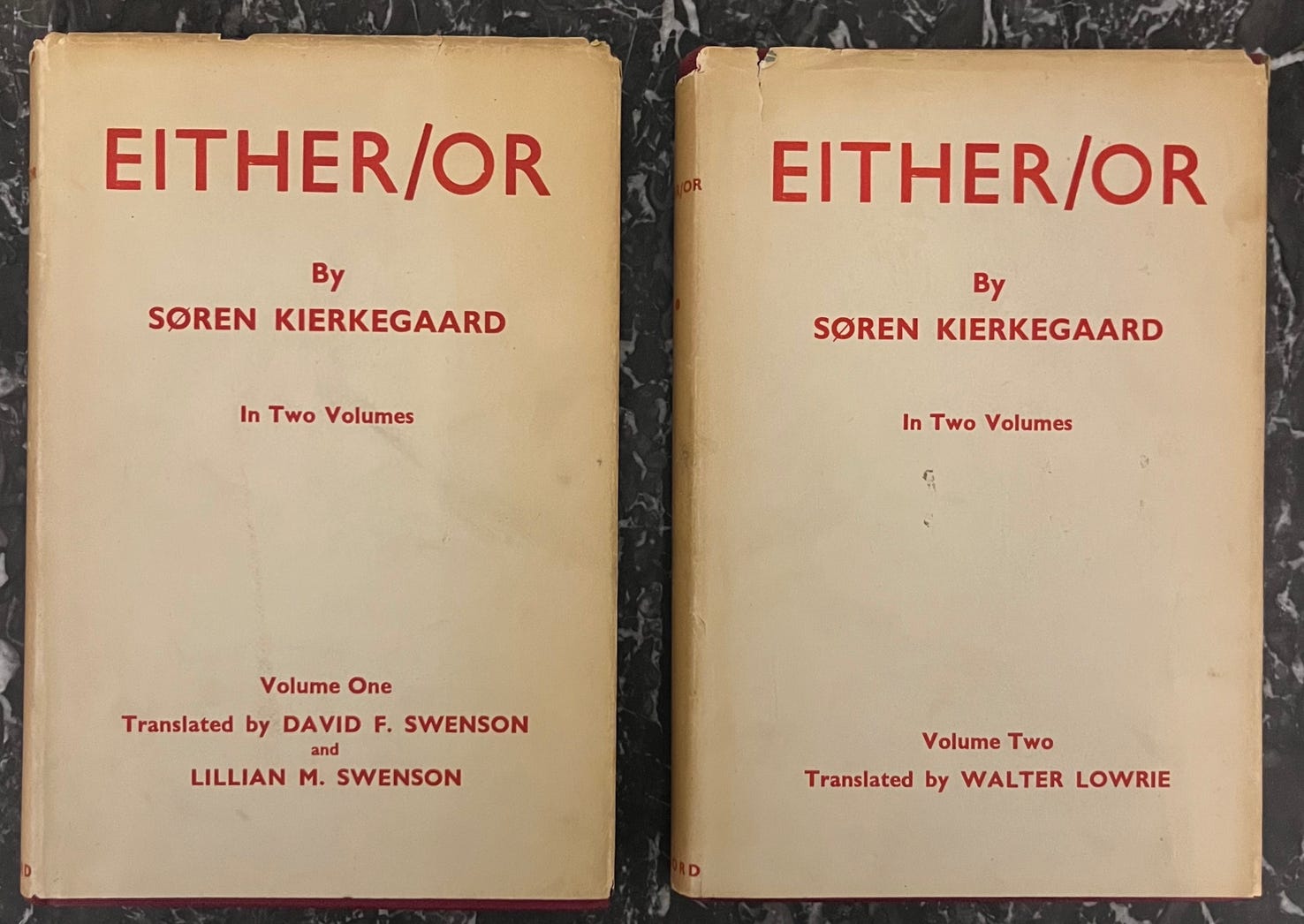A few days ago, our oldest son Michael got married in Cambridge, Massachusetts. This was a big deal—Michael is the first of his generation of Gioias to tie the quasi-Gordian knot, and guests gathered from near and (mostly) far. It was a traditional ceremony but with some unconventional elements. My brother Dana, for example, read a poem. And my name also showed up on the program too—I was scheduled to offer a “reflection.” But what should I say to all those people? My son the groom had a bit of advice. “Dad, why don’t you read the same passage from Kierkegaard that you recited at your own wedding?” That was a swell idea—much better than reading from my recent Substack columns. But where was that bloody passage in Kierkegaard? He wrote a lot of books—the website Goodreads attributes 1,164 volumes to him—and even assuming that’s an exaggeration, it still would take forever to find it. I could rule out some options. Surely I wouldn’t have recited a passage from The Concept of Dread on my wedding day? (Or would I?—I did some peculiar things in my youth. And this was, after all, my last public pronouncement as a single man.) The same was true for Fear and Trembling or The Sickness Unto Death? I love those gloomy books, but they definitely don’t go with marriage like a horse and carriage. I started feeling a heavy bout of Kierkegaardian angst come on. I had read something half a lifetime ago, and had to find it again. But where do I even start? The Honest Broker is a reader-supported guide to music, books, media & culture. Both free and paid subscriptions are available. If you want to support my work, the best way is by taking out a paid subscription.But I fortunately hold on to odd bits and pieces of paper—writers can be obsessive about that. And I found my reprieve in a box of files—in fact, I located the exact sheet of paper I had read from 33 years ago on my wedding day. It was in an envelope right next to the marriage certificate. The sheet of paper was in good shape—it had held up much better than me. But what about the text itself? Was is still appropriate, or perhaps (a word that makes us all shudder nowadays) problematic? So I read through the Kierkegaardian passage with real fear and trembling, asking myself whether it would convey the right message for my son’s nuptials. I am not ashamed to say that some tears came to my eyes as I read this passage in 2024. It actually holds meanings for me now that I could not have possibly comprehended as a young man. I made only one change from my own wedding day recitation, and omitted the first two sentences. (The original source is volume two of Either/Or, by the way). So here’s what I read at the Cambridge ceremony: I’d like to read a passage from Søren Kierkegaard that I recited at my own wedding many years ago. Please forgive me if I get a little teary-eyed while reading this—I am the sentimental sort:
Adapted from Søren Kierkegaard (1813-1855) |
Search thousands of free JavaScript snippets that you can quickly copy and paste into your web pages. Get free JavaScript tutorials, references, code, menus, calendars, popup windows, games, and much more.
I Had to Say Something at My Son's Wedding
Subscribe to:
Post Comments (Atom)
When Bad People Make Good Art
I offer six guidelines on cancel culture ͏ ͏ ͏ ͏ ͏ ͏ ͏ ͏ ͏ ͏ ͏ ͏ ͏ ͏ ͏...
-
code.gs // 1. Enter sheet name where data is to be written below var SHEET_NAME = "Sheet1" ; // 2. Run > setup // // 3....





No comments:
Post a Comment